Queen and UK officials worried Paul Keating’s republican push risked bilateral relations
Newly declassified UK government records reveal the response from the Queen and UK diplomats, officials and politicians to Paul Keating’s controversial republic plans.
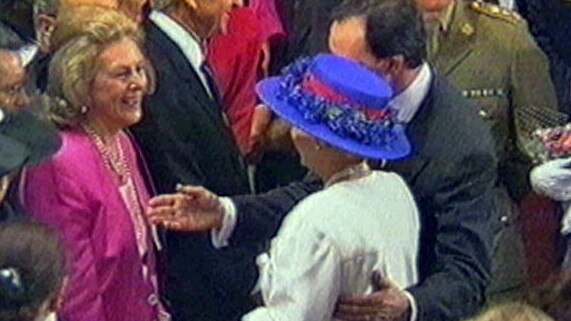
Ahead of Paul Keating’s meeting with Queen Elizabeth II to discuss Australia becoming a republic at Balmoral Castle, 30 years ago this week, British officials and royal staff were eager to avoid the issue damaging bilateral relations and arousing hostility towards the monarch.
A trove of British government cables, letters, briefing papers and meeting records, accessed by The Australian at The National Archives in Kew, outside London, reveal prime minister John Major and the Queen thought the republic debate was a matter for Australia to determine but nevertheless followed it very closely.
Briefing documents from the Foreign and Commonwealth Office for Downing Street noted the view of Sir John, the Queen and Prince Charles was that the British had “no role” in the republic debate and their “principal concern” was that relations with Australia were not diminished.
“The central issue of Mr Keating’s visit will be constitutional change in Australia,” advised an FCO brief for Sir John in September 1993.
“There has already been substantial media coverage, much of it uncomplimentary to Mr Keating and directed at the visit he will pay to Balmoral on 18/19 September.
“The prime minister will have an opportunity to make clear that HMG has no role in the debate in Australia on constitutional change; the Queen is Queen of Australia and receives advice on Australian matters from her Australian ministers. HMG’s concern is to sustain and develop our bilateral relations during the debate.”
British officials and diplomats thought Mr Keating was prosecuting the republic so determinedly that Australia would inevitably sever constitutional ties with the UK. With some prominent Liberals declaring themselves republican, high commissioner Brian Barder thought Australia would be a republic by 2000.
“We are following closely the republican debate in Australia,” the FCO advised Downing Street in May 1993. “Our high commissioner believes there is a rapidly emerging multi-party consensus that Australia will be a republic by the end of the decade.”
When Mr Keating met the Queen in Scotland, she affirmed the convention of non-interference and a later cable noted she had authorised him, as he had requested, to say publicly she “would always act on the advice of her Australian ministers and on any decision made by the Australian people”.
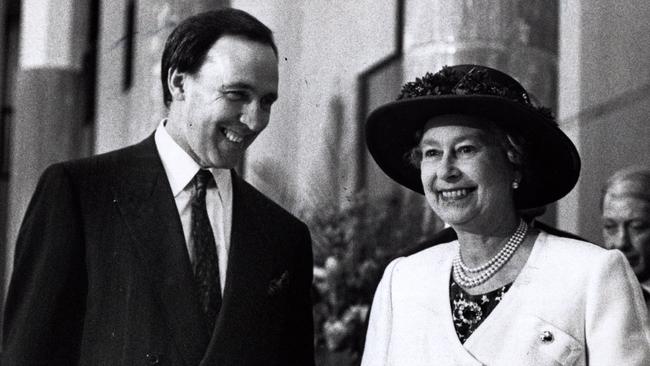
It followed a period of hyperactivity in Whitehall and Downing Street about Mr Keating’s looming British visit to discuss his formal policy that Australia become a republic, which had won endorsement at the March 1993 election.
Douglas Hurd, British foreign secretary, advised Sir John that Mr Keating did not want to “upset” relations but conceded there could be “fallout” from the visit and the republic issue was a challenge for the Queen.
“The royal family were faced with a difficult choice,” Downing Street noted him saying. “If they continued to visit Australia while moves towards a republic were under way, they could become embroiled in Australian political controversies, with their visits being exploited by republican extremists. Conversely, not to go would give rise to accusations of indifference and neglect.”
Michael Keating, the head of the Department of the Prime Minister and Cabinet, reassured British officials that the Labor government attached high importance to maintaining strong bilateral relations regardless of the republic issue.
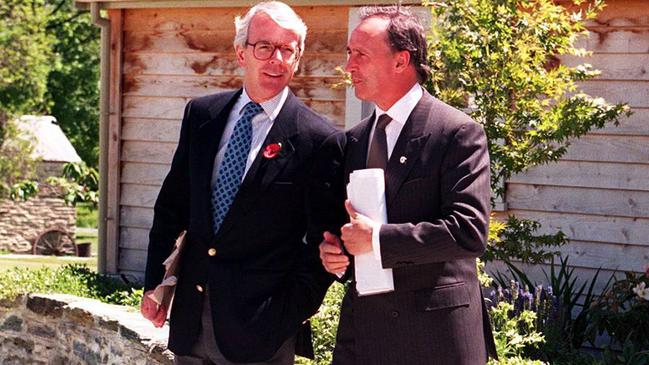
The FCO, concerned about a backlash against the Queen and Britain, judged it was in the interests of both countries that Mr Keating’s trip was successful. “We may need to work hard to avert the risk that since most anti-republicans in Australia are pro-British, there will be linkage in many minds there between support for a republic and hostility towards Britain,” the FCO advised Downing Street in May 1993.
A month earlier, Mr Keating replied to Sir John’s letter congratulating him on re-election and noted “though the form of the traditional links” between Australia and Britain might change, he was “confident that there will be no diminution of the real and profound friendship our peoples feel for each other”.
When the prime ministers had pre-lunch drinks at Downing Street in September, Mr Keating told Sir John he was “not in a hurry” for Australia to become a republic and in a discussion of possible models, mentioned “he did not want an elected president” who could claim a mandate to challenge an elected government.
In a May 1994 dispatch to London, the high commissioner said the republic issue required “damage limitation” strategies by Britain. He advised the need “to be imaginative … in pursuit of ways of counteracting the tendency of the republican controversy to foster a negative image of Britain as irrelevant if not inimical to Australia’s interests and untrammelled independence, and as a drag-anchor impeding Australia’s slow but steady voyage into Asian-Pacific waters.”
Troy Bramston is the author of Paul Keating: The Big Picture Leader (Scribe)


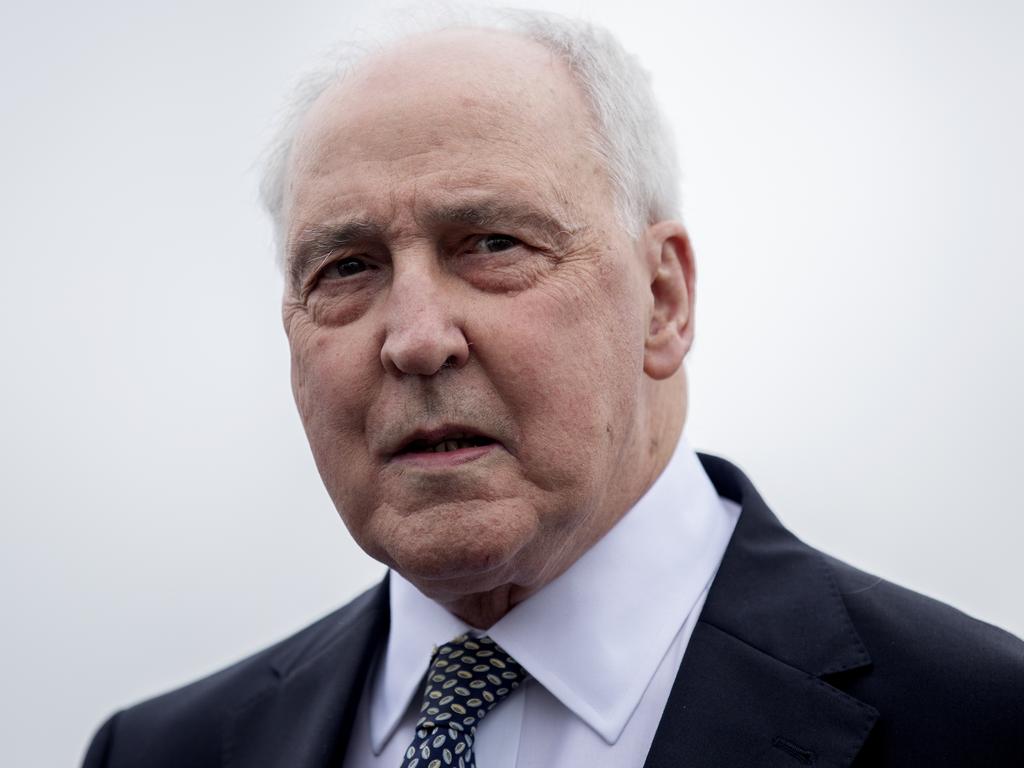
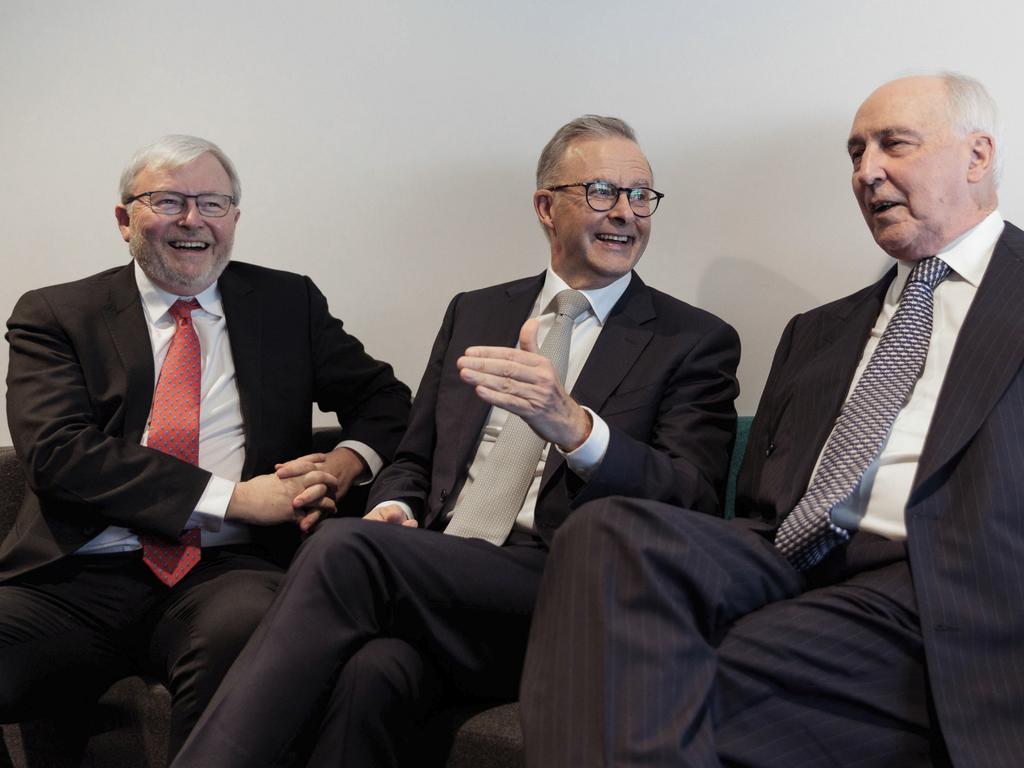




To join the conversation, please log in. Don't have an account? Register
Join the conversation, you are commenting as Logout